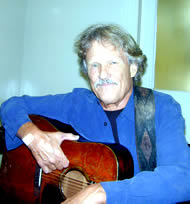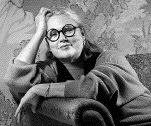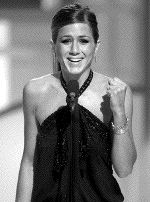The Good Daughter
From the Sharon Dunn |
| The good daughter Frank, funny, even a little intimidating, Jann Arden is also just too nice to skirt even the most embarrassing questions |
 [Photo: Glenn Lowson, National Post] “I have no regrets about the many experiences I’ve had,” says singer-songwriter Jann Arden. “I surrender to where my life is going.”‘ I think I can fit this plate into my purse,” says Jann Arden, grabbing a dish off the table as she sits down for lunch. “They’re from Ashley’s –” the waitress tells us of the dishes as she scoops them out of our reach, “show plates.” “Bastards,” Arden says as the server carts the decorative plates away. I can tell this is going to be an interesting lunch. “I’m just having consommé,” Arden announces. “Not me, I’m going for it,” I tell her. I settle for crab cakes and a mixture of shrimp and lobster that Arden has recommended. “I got it from room service last night,” she says. “You have to have it. I’ll take a bite when it comes.” We settle down to discuss her journals, just published in a book titled ‘If I Knew, Don’t You Think I’d Tell You?’ “I’m no Walt Whitman,” Arden admits, “but I have an opinion, and if someone wants to publish me, why not?” And opinions she has. “I have my own idea of beauty, size and shape. I don’t understand the big-boob thing,” she adds. “I wouldn’t mind having small boobs — I thought of getting mine reduced, but I changed my mind. I’m a size 12. I like my curves, my hips. I’m healthy, I revel in being a woman. I’m physically and mentally healthy. You have to accept what you have.” A natural blond who dyes her eyebrows brown, Arden says, “I don’t think it would be easier being thin and beautiful, I think it would be harder. Look at models who are starving themselves. Be who you are. Wisdom is defined by the number of years spent on the planet.” My crab cakes are served, and Arden helps herself to one of the two as she continues talking. “With my music, I don’t hump the legs of my nine nude dancers. I don’t expose my midriff — mainly because I don’t know where it is,” she says, laughing. Arden is 40 years old, from Calgary, close to her parents and a great Canadian success story, but she’s had her problems. “When I was 20 years old, I had a pacemaker put in because I had a slow heart rate,” she tells me. “I think I was misdiagnosed: After 17 years, I was told during a checkup that my 10-year-life battery was still fully charged — at 100%.” The pacemaker was the size of a hockey puck, the size of this piece of f—ing bread,” she complains, grabbing a chunk from the bread basket we are both rapidly depleting. “It was such a pain at airport securities, in stores — the pacemaker would go off. So I had it taken out, but I still have two feet of Teflon lead that has grown into my heart. It’s dangerous to remove. Also, I was a shitty drinker in my twenties. I drank too much when I was in the bar bands. I went to Vancouver, hanging out on the streets, playing for money. Some days I made $1, other days I made $20. Finally, one day I got punched in the face, and that was the end of that.” Her chicken consommé arrives. “It’s light and delicious,” she says. My shrimp and lobster also arrive. At my invitation, she helps herself to a few of my shrimp. “After that, the universe picked me up and took me away. I didn’t do any of this,” she says humbly of her great success in the music business. She is so warm that at one point I notice we’re talking more about me than about her, so I remind her I’m the interviewer. Asking if I want a little gossip, she tells me about a recent visit to the home of Oscar winner Hilary Swank and husband Chad Lowe (brother of Rob) in New York. “The bathroom was the size of this restaurant,” she says, “but there was no toilet paper, and they didn’t have the cap on the toothpaste. I grabbed a J-Cloth that was on a table and used it, but because there was no garbage can either, I had to flush it down the toilet.” Arden laughs. “I was worried all night about the damned J-Cloth clogging the toilet. You don’t mind if I have your lobster claw?”, she asks as she scoops it off my plate. I’m aghast. “You want the whole thing?” I complain. After all, they only served me one claw. “Absolutely,” she says. I eat my lobster tail quickly and defensively while I still have it, realizing I’ve finally met my lunch date match. Arden tells me she isn’t married and has no children. I know the rumour is she’s gay, but I’m so damned polite, and she’s so damned nice, I don’t know how to broach the topic without embarrassing both of us. “Do you want children?” I ask, easing my way in.” Lyle, the drummer, told me, ‘I will give you sperm anytime you want.” “”Does he mean artificially?” I ask stiffly. “He’d better not,” she says, laughing.”My parents desperately want me to get married. If I brought home a guy named Sven, who was a crack addict, they’d be thrilled. They don’t want me to end up alone.” “Have you ever been in love?” I ask, pursuing my case. “Three times,” she says. “Love is never the same.” “Did you leave them?””Never,” she says. “I always got left.” Now, that’s a brave response. This is it, I think, I’ve got to ask the big one now. “Are you heterosexual?” I manage to spit out, shutting my eyes. I wait in embarrassed silence for a response. “I’m sexual,” Arden replies carefully, her voice even. Slowly, I open my eyes. She looks relaxed — almost sympathetic that I’m so uncomfortable. “I’ve walked down many different roads in my life, Sharon,” she says. “I have no regrets about the many experiences I’ve had. I surrender to where my life is going.” I consider what she has said. “Now, how am I going to say all that and not upset your mother?” I ask, remembering how close she is to her parents. “Don’t worry,” she says, “my mother’s used to me. Besides, the media has always been fair, but they do seem a little intimidated by me.” No kidding, I think. I find her intimidating, but I’m not sure why. Maybe because she’s so blunt. “I’ll always answer the questions,” she tells me, “and let the chips lie where they may.” She is just as honest when she tells me her greatest regret in life. “I regret that I haven’t been able to help my older brother, that I didn’t get to know him better as a child,” she says.(Her brother Duray was convicted of murder in 1994 and sentenced to life in prison. I’m told that although he has always proclaimed his innocence, this never gets mentioned in media reports.)”He’s in a mental wasteland — he doesn’t believe in God.” “I don’t think I should write that.” “Yes, you should,” says Arden, who does believe in God. “If I wasn’t spiritual, I wouldn’t find any worth in living and being here. I believe in universal fairness.” She gives me a warm hug when she gets up to leave. “Wasn’t that Jann Arden?” a woman at the next table asks me. I nod, and the woman says, “Her hair is so beautiful, and she looks like she’s lost a lot of weight. What did she have to eat?” “Just a consommé.”, I lie. by Sharon Dunn edited Jan 20/25 |







